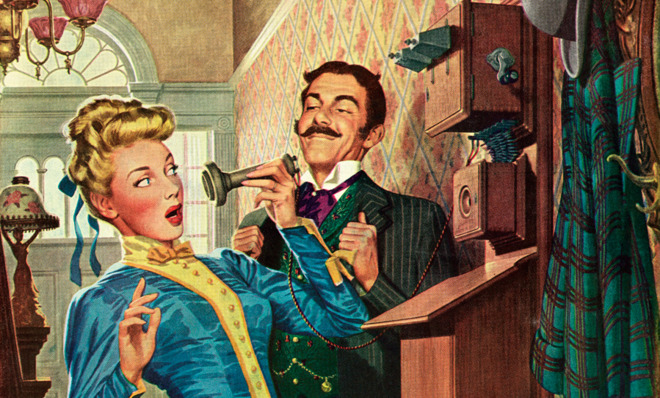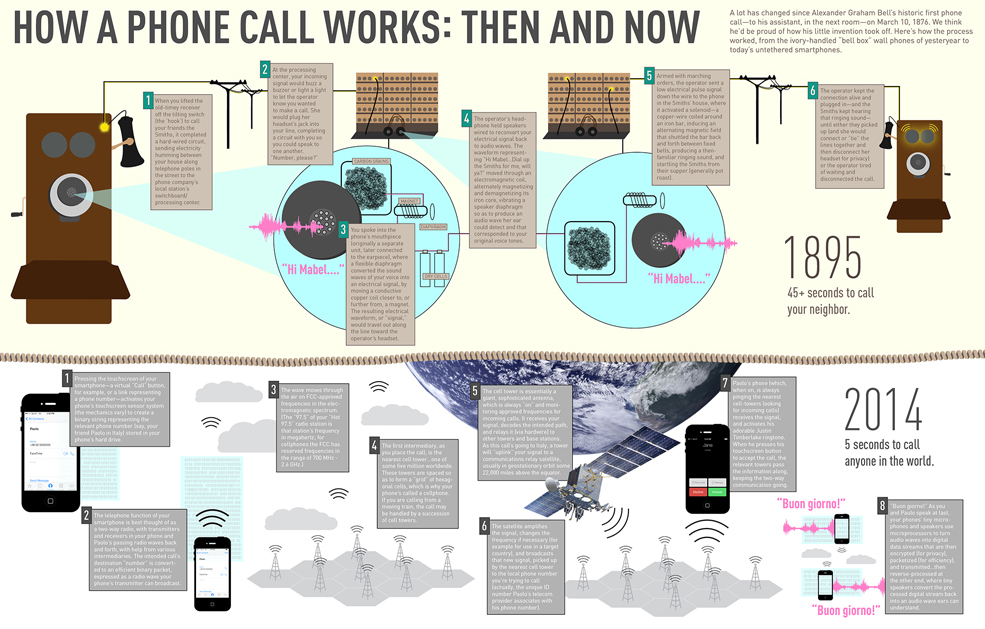What would using a telephone have been like in 1895?
"Number, please?"

A free daily email with the biggest news stories of the day – and the best features from TheWeek.com
You are now subscribed
Your newsletter sign-up was successful

One hundred and thirty-eight years ago this week — on March 10, 1876, to be exact — Alexander Graham Bell spoke the first words into a "tele-phone," as it was called, to his assistant Thomas Watson, positioned at a receiver in another room. "Mr. Watson!" Bell exclaimed in staccato bursts. "Come here! I want to see you!" And for decades, telephones looked like elaborate pieces of furniture, affixed to walls and hard-wired out to the street, and up and down the blocks to local-area switchboards. If you wanted to talk on the phone, you had to go stand next to a wall.
What a difference just over a century makes! Modern smartphones still require electric power to operate, a microphone and speaker to translate voices into signals, and a ringer of some type to make your party aware you’re calling. But beyond that, virtually everything has changed. Check out this infographic showing, from a scientific and technical perspective, what happened then and what happens now, every time you make a call.
The Week
Escape your echo chamber. Get the facts behind the news, plus analysis from multiple perspectives.

Sign up for The Week's Free Newsletters
From our morning news briefing to a weekly Good News Newsletter, get the best of The Week delivered directly to your inbox.
From our morning news briefing to a weekly Good News Newsletter, get the best of The Week delivered directly to your inbox.

More from World Science Festival...
A free daily email with the biggest news stories of the day – and the best features from TheWeek.com
-
 Hyatt chair joins growing list of Epstein files losers
Hyatt chair joins growing list of Epstein files losersSpeed Read Thomas Pritzker stepped down as executive chair of the Hyatt Hotels Corporation over his ties with Jeffrey Epstein and Ghislaine Maxwell
-
 Political cartoons for February 17
Political cartoons for February 17Cartoons Tuesday’s political cartoons include a refreshing spritz of Pam, winter events, and more
-
 Alexei Navalny and Russia’s history of poisonings
Alexei Navalny and Russia’s history of poisoningsThe Explainer ‘Precise’ and ‘deniable’, the Kremlin’s use of poison to silence critics has become a ’geopolitical signature flourish’